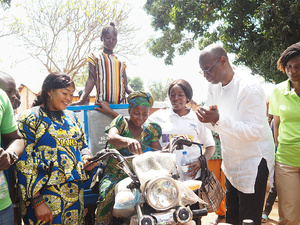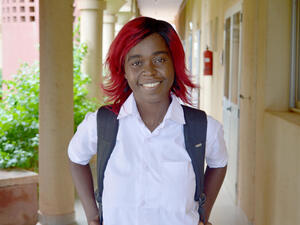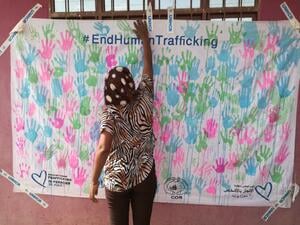UNHCR says lives at risk in Côte d'Ivoire, calls for opposing groups to support humanitarian efforts
UNHCR says lives at risk in Côte d'Ivoire, calls for opposing groups to support humanitarian efforts
UNHCR is today appealing to warring groups in Côte d'Ivoire to commit themselves to supporting urgently-needed humanitarian efforts and avoid placing civilian lives at risk.
As of Monday an estimated 200,000-300,000 people were displaced in Abidjan and a further 70,000 people in the country's west, in both cases as a result of recent or ongoing fighting. The humanitarian and protection needs are growing fast. Thousands of people across Abidjan remain holed up in community centres where conditions are inadequate and where protection needs have not been properly assessed. In Abobo district some 60 families remain trapped in a church and apparently prevented by fighters from leaving. In western Côte d'Ivoire humanitarian access to people in need has been severely impeded by insecurity. As a result thousands of displaced people are almost entirely without help.
The risks for civilians, including people of concern under UNHCR's mandate, are also growing. Persistent reports that Liberian mercenaries are being brought in to join the fighting is fueling distrust. This in turn is creating risks for the 24,000 Liberian refugees in Côte d'Ivoire.
The number of Ivorians fleeing into eastern Liberia has also risen dramatically. UNHCR has so far registered some 75,000 refugees, of whom around half have arrived since 24th February. From government and other partners we have reports of a further approximately 7000 arrivals. This sudden influx is placing enormous strains on local communities and abilities of aid organizations to help. In Buutuo Town, in eastern Liberia's Nimba County, the water and sanitation situation has become critical, with reported cases of diarrhoea and malaria, and food shortages. UNHCR and its partners have been working to rehabilitate bridges and roads to improve access. We have also been providing direct support where we can to refugees and the communities around them.






